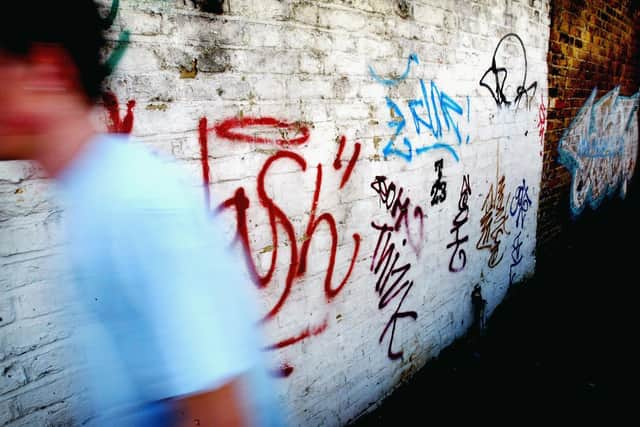Anti-social behaviour: Here's how we can start to tackle this blight on Scotland's town centres– Karyn McCluskey
Headlines about anti-social behaviour abound. There is little doubt that a tiny virus called Covid caused ripples throughout our lives that are still evident – the butterfly effect writ large. Children missed school, fell behind, sometimes never returned or became so disengaged that exclusion and truancy formed a large part of their existence. Add to that a cost-of-living crisis, parents possibly facing their own demons, and it’s little surprise that schools are reporting challenges with behaviour.
And it’s being seen in our communities. Sometimes crimes are described tightly and we can all understand what they are, like housebreaking and car theft. Others like anti-social behaviour (ASB) are a catch-all for a range of behaviours like noisy neighbours, drunken or threatening behaviour, vandalism, urinating in the streets, dumping rubbish and a myriad of other things.
Advertisement
Hide AdAdvertisement
Hide AdI write about ASB with trepidation. I moved from a flat that I adored after years of noisy student parties, being woken up at 4am and appearing at work in the depths of sleep deprivation. I know what it feels like to be haunted by neighbours who seem to exist in a parallel universe of revelry, booze and industrial amounts of cannabis.


The wrong issue, the wrong tactics
But we need to remember it’s not always young people. Often they are better behaved and make more informed decisions about their lives than other generations. Many of the people we deal with are older but not necessarily wiser.
I listened to a shopping centre manager last week talking about the anti-social behaviour he saw in the town. He expanded on the theme talking about shouting and swearing, kids hanging around, drug paraphernalia in toilets, drunkenness, thefts and more. There was a range of problems: the selling of alcohol to minors, substance use, the lack of services for people on the margins of society, the erosion of youth services, school exclusion, truancy and some crimes that needed police involvement. It’s complicated and single solutions are pointless.
Problem-solving approaches first require us to truly understand what we are tackling in order to avoid trying to address the wrong issue, with the wrong tactics. We must see things as they are.
Long-term problem
It’s easy to talk about groups of people causing issues but more difficult to take the time to understand the drivers of the behaviour and what can be done to mitigate and eradicate the issue. The cause of the cause of the cause... In a ‘glamorous’ previous role, I investigated complaints about peeing in the streets, only for us to work out that we filled people with beer and then closed all the public toilets at 11pm – my tale of pop-up pissoirs is a whole other column.
Anti-social offences accounted for 31 per cent (around 55,000) of all offences recorded in Scotland in 2021-22 – a vast underestimation. Yet their impact is huge, our town centres are struggling and need to be safe, welcoming places for people to meet and shop for necessities.
Anti-social behaviour won’t be far from the news headlines for a while. The Covid inquiry will be long gone, austerity may ease, but the impact of these challenges will be tangible for years to come.
Karyn McCluskey is chief executive of Community Justice Scotland
